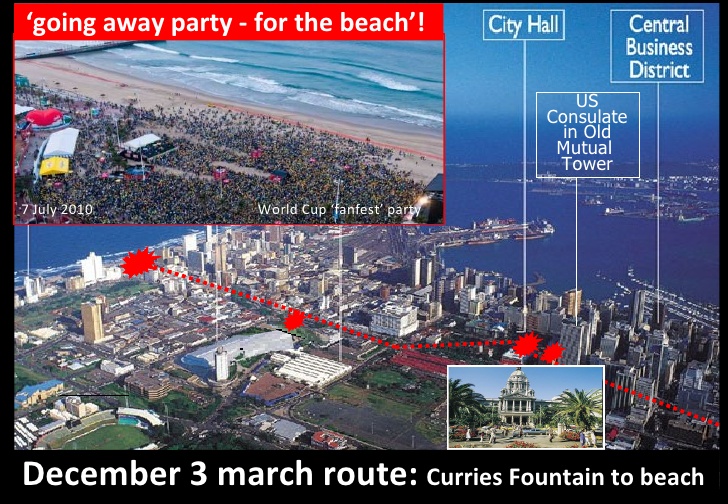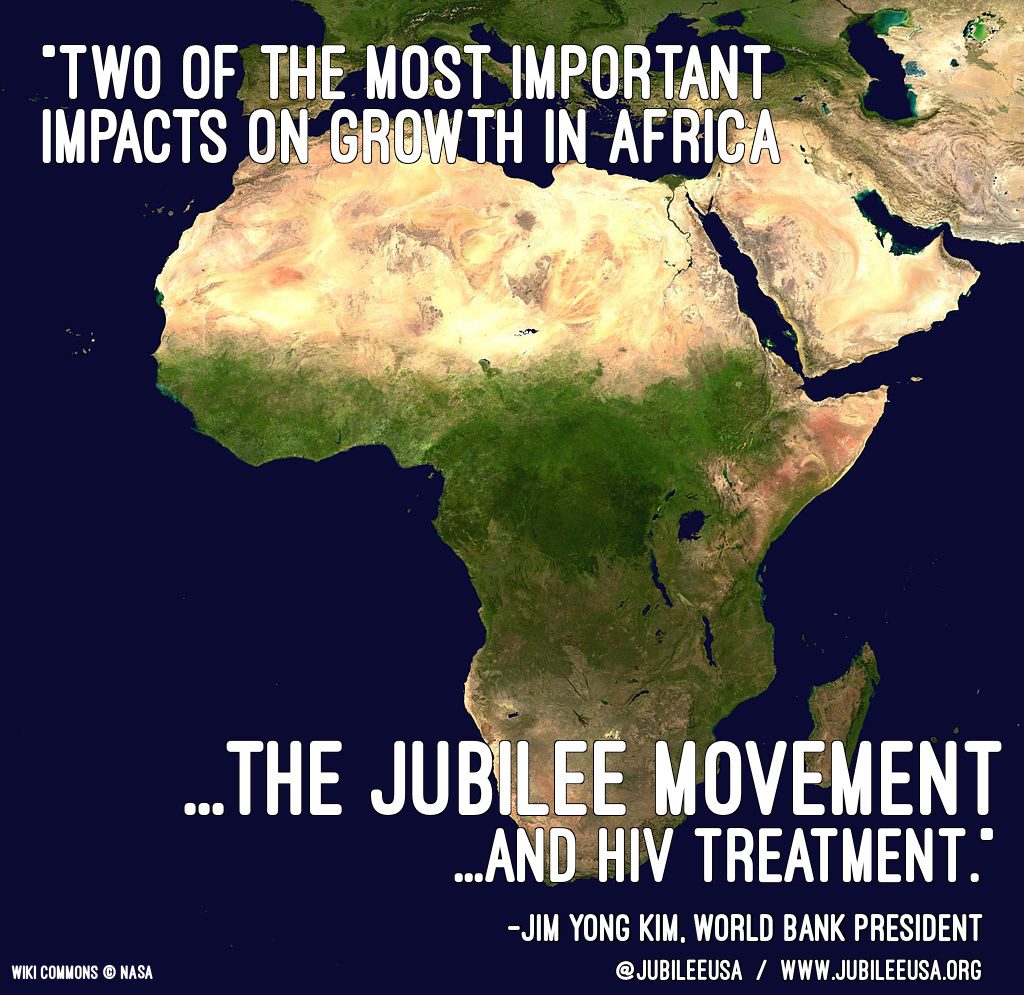
Jubilee USA Network Monthly Grassroots Action
October / November 2003
Support Jubilee Debt Cancellation with the World Bank Bonds Boycott!
The monthly grassroots action for October/November is to support the World Bank Bonds Boycott campaign.
The World Bank Bonds Boycott is an international grassroots campaign that is building moral, political, and financial pressure on the World Bank for change. The World Bank raises most of its funds by issuing bonds. Ordinary people, through pornochacha their pension funds, religious communities, labor unions, churches, municipalities, and universities are exerting pressure for change on the World Bank by adopting resolutions or policies against World Bank bond investment. The campaign calls for 100% debt cancellation for impoverished countries and cancellation of illegitimate debt, an end to the World Bank’s harmful “structural adjustment” policies; and an end to environmentally destructive projects, especially for oil, gas, mining, and dams. Jubilee USA Network has endorsed the campaign and many member groups have also joined.
There are two easy and exciting ways for Jubilee member groups and local organizations to get involved with this month’s action:
1) Ask your religious community, church or other group to pass a World Bank Bonds Boycott resolution
If your group has not yet videos x adopted a policy against buying World Bank bonds, bring the proposal to support the World Bank Bonds Boycott to your religious community, church, or other institution. You can ask your group to pass a resolution against buying World Bank bonds. It doesn’t matter whether you actually invest in World Bank bonds right now or not – the statement is a powerful moral and political statement as well as a financial pressure tactic to help promote debt cancellation and other changes at the World Bank. 2) Sign-on to a letter to TIAA-CREF, the nation’s largest pension fund, as part of the World Bank Bonds Boycott’s “TIAA-CREF: Take the Next Step Campaign!”
You can participate in this effort by signing on to a letter to TIAA-CREF, the nation’s largest pension fund in support of the World Bank Bonds Boycott. Even if you or someone in your group is not a member of TIAA-CREF, you can ask professors, teachers, or other academic staff in your area to consider signing onto the letter as a way to support Jubilee debt milf xxx cancellation. TIAA-CREF’s members are mainly academic staff, professors, and teachers. You can also ask students and student networks in your area to take the letter and information to professors that are sympathetic to issues of social and economic justice.
A copy of an action alert with more of information on the “TIAA-CREF: Take the Next Step Campaign” and instructions on how to sign on to the letter follows below. For more information and background materials on this
World Bank Bonds Boycott Campaign
ACTION ALERT
October/November 2003
Tell TIAA-CREF: Take the Next Step on World Bank Bonds!
Late last year, TIAA-CREF, America’s largest pension fund, sold off all its holdings of World Bank bonds. TIAA-CREF cited financial considerations as the main reason for its decision. Whatever reason TIAA-CREF sold its bonds, this is an important development and victory for those of us working to challenge unjust globalization and to pressure the World Bank for change.
Now, especially if you are a member, TIAA-CREF needs gang bang xxx to hear from you again. We are asking you to sign-on to the below letter to TIAA-CREF thanking them for their decision to sell off their World Bank bonds, and to ask TIAA-CREF to take the next step. The next step is to adopt a policy against future investment in World Bank bonds, both in its main fund and its Social Choice Account. This campaign is important because TIAA-CREF is the largest pension fund in the country and what they do is noticed by other large institutional investors as well.
We want to deliver the below letter, with hundreds of signatories from TIAA-CREF members across the country, to TIAA-CREF’s upcoming Annual Meeting, which will take place on November 13, 2003 in New York City. Please act today, and please forward this message widely to listserves and other people you may know that are members. You can sign onto the letter by sending your name, title, affiliation (your organization or educational institution) to TCLetter@econjustice.net .
Letter to TIAA-CREF: Take the Next Step on World Bank Bonds
As members of TIAA-CREF, we want to thank you for TIAA-CREF’s recent decision to sell its holdings of World Bank bonds. We applaud you for your decision both because it is a financially sound decision to make, and because it is a socially responsible move.
We write today to urge you to take the next step. We request that TIAA-CREF adopt a policy against investing in bonds issued by the World Bank (the International Bank for Reconstruction and Development, or IBRD), and instead invest in bonds that promote social good. We would urge you to adopt such a policy for all TIAA-CREF funds, including the Social Choice Account.
There are compelling financial and social reasons for adopting a policy against World Bank bond investment. First, from a financial perspective, there are a number of risk factors associated with World Bank bond investment. A growing number of World Bank borrowers –including, in November 2002, Argentina – are defaulting on payments to the institution, or may be forced to do so in the future. Moreover, many World Bank loans are poorly monitored and are not sustainable, which may increase risks of non-payment. Finally, a growing campaign which urges investors not to purchase the bonds, the World Bank Bonds Boycott campaign, is increasing risks associated with holding the bonds and seeks to lower the Bank’s “AAA” rating.
Second, World Bank bonds are not socially responsible investments. The World Bank lacks democracy and transparency in its operations: voting power in the institution is heavily skewed in favor of rich countries, and its Board meetings held in secret. The World Bank’s lending in recent years has been increasingly oriented towards so-called “adjustment” loans which allow the Bank to avoid environmental and social safeguard policies in place for its project lending. As members of TIAA-CREF, education is a strong priority for us. Many of the World Bank’s loans for education have come with requirements that user fees be charged on students and that teacher salaries be cut. Finally, the World Bank’s refusal to cancel illegitimate and unpayable debts owed to it by impoverished countries means that dozens of countries around the world must make unconscionable payments to the World Bank while their education and health systems collapse.
We support a statement of policy from TIAA-CREF against investment in World Bank bonds. Such a statement would reduce the risks to TIAA-CREF participants that are associated with holding World Bank bonds, and it would send a strong message for change to the World Bank.
Thank you for considering our request, and we look forward to receiving your response.
Sincerely,
(Initial signers)
Patrick Bond, Professor, University of the Witwatersrand (Johannesburg) and Visiting Professor, York University (Toronto)
Salih Booker, Executive Director, Africa Action, Washington, DC
Dennis Brutus, Professor Emeritus, University of Pittsburgh
Tim Canova, Professor of Law, University of New Mexico School of Law
Mark Weisbrot, Co-Director, Center for Economic and Policy Research, Washington, DC
Emira Woods, Co-Director, Foreign Policy in Focus, Institute for Policy Studies, Washington, DC
Iris Marion Young, Professor of Political Science, University of Chicago


